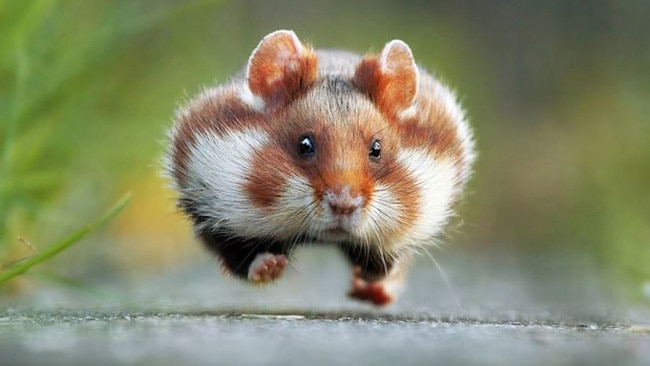Why hamsters could be the key to finding coronavirus vaccine
They’re popular pets in America and currently banned in Australia, but the humble hamster could be the key to saving so many lives and cracking coronavirus worldwide.

HS Coronavirus News
Don't miss out on the headlines from HS Coronavirus News. Followed categories will be added to My News.
Cold weather could be the bitter enemy of Victorian health authorities as they fight to gain control over the State’s latest COVID outbreak, the Doherty Institute warns.
But bringing hamsters to Australia could be the key to rolling out a lifesaving coronavirus vaccine.
Doherty immunology expert Dale Godfrey said the germ could remain infectious on surfaces for a fortnight in frosty conditions,
“The virus remains infectious on surfaces perfectly well for hours, if not days, in mild weather … but in cold winter temperatures it can remain infectious for longer, potentially for weeks,” he said.
With some parts of Victoria becoming very cold in winter, this could create additional challenges to stopping the spread of highly-infectious coronavirus, Prod Godfrey said.
And emerging mutations of the virus could make it harder still.
“There are different variants of the virus circulating and some of them are potentially more infectious (than others) but it’s not clear whether that explains what’s going on here,” Prof Godfrey said.
Meanwhile, coronavirus research here has been hindered by a lack of test subjects, and bringing hamsters to Australia could be the key to rolling out a lifesaving coronavirus vaccine.
Currently banned as pets in Australia but popular in America, the small rodents could be the best animal to test COVID-19 vaccines on, director of the Australian Centre for Disease Preparedness Trevor Drew said.
The Geelong CSIRO centre is one of the world’s most sophisticated research centres for zoonotic diseases, which are those that transfer from animals to humans.
The centre’s recent testing of the Oxord University coronavirus vaccine on ferrets has led to it being trialled in humans, with promising results.
Other vaccines have been developed in Australia, China, Japan, the United States, Canada, India, Germany, Russia and South Korea.
But ferrets were not the most ideal animal to test coronavirus vaccines on, and better results could potentially be achieved by using another animal, possibly hamsters, Prof Drew said.
“There is a possibility that if we can find a better animal model we might be able to understand more about the consequences of different routes of infection, different ages, these sorts of things,” he said.
“Hamsters are possibly a more appropriate model … for looking at more severe clinical disease caused by the virus. So we will be hopefully looking at that. The problem is, that currently Australia does not have hamsters.”
Scientists are trying to understand why COVID-19 persists in some communities and why individuals react differently to exposure to the disease, he said.
“Why some experience the virus for some days before they show clinical signs and show symptoms of the disease – and sometimes don’t show any symptoms at all – there’s clearly something about the relationship with between the host and the virus,” Prof Drew said.
READ MORE:
ST BASIL’S GRANDMA ‘MISSING’ AFTER CORONAVIRUS DIAGNOSIS

